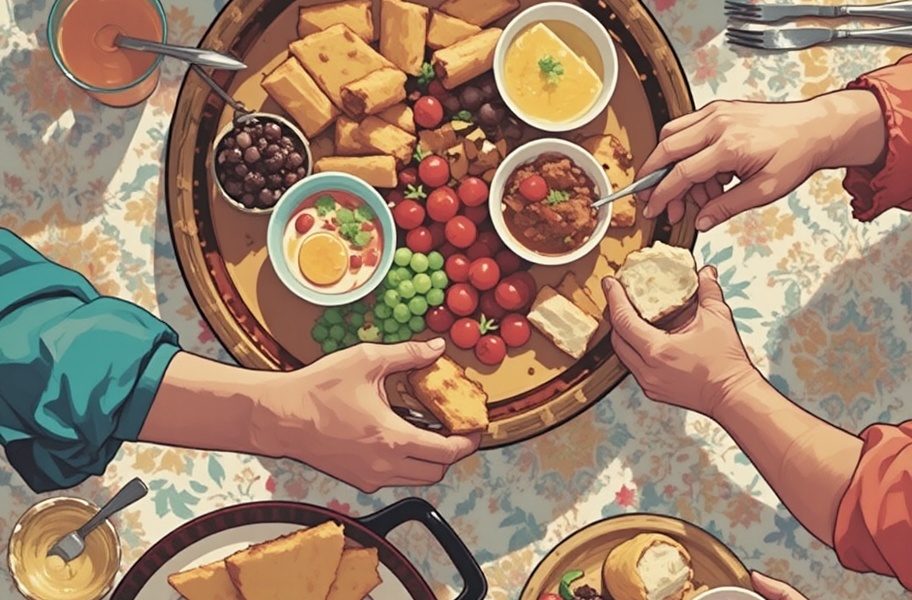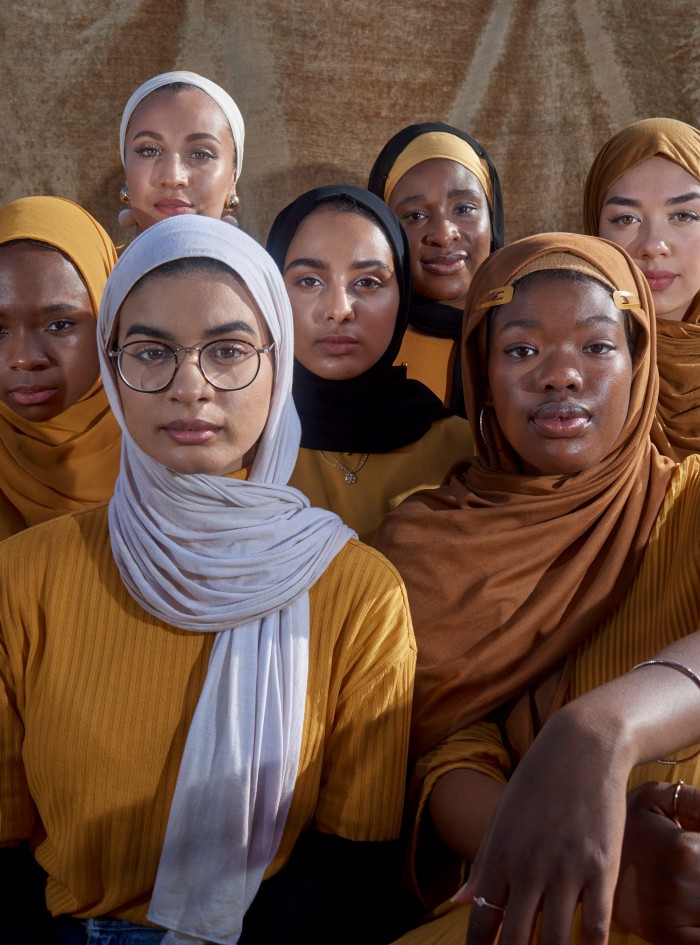The unacknowledged labour during Eid Celebrations was not just expected but demanded from me.
Not long ago, a perfectly well-meaning man asked me what my favourite festival from “back home” was. I had made a point of insisting on how I grew up Muslim in Pakistan, so I didn’t have significant memories attached to Easter or Christmas like some of those who had grown up in places like Canada, where this conversation was taking place.
That innocuous question, however, caught me off guard. I stumbled to find a reply, struggling to think of something. Right now, I don’t even remember what I said. There were, and are, plenty of occasions to celebrate throughout the Islamic year, which is where most mainstream Pakistani festivals stem from. We even get a day off for Christmas (though that’s mostly because it coincides with the founding father’s official birthday). There are non-religious, largely cultural reasons to celebrate too, every now and then. But in the struggle to answer that question I realized I didn’t really ever enjoy any of them.
Growing up, most festivals, religious or otherwise, were chores. Festivals meant there was a flurry of activity in our upper-middle-class, urban Pakistani household. It was the maid’s day off. One had to wake up earlier than usual. There were surfaces to be cleaned, more vigorously and for longer. More food to be made. More chai to be served. More running around to be done. The grating presence of extended family and friends of my parents who I personally felt no affinity towards. It was all just work. And amidst it was the gratuitous oozing of joy required from the women, including me, regardless of whether we were happy or not. The smiling and nodding and acknowledgement of petty gossip that I would rather be miles away from. It was a requirement policed and enforced, and anytime the mask slipped there was plenty of chastising to be had. Nobody needed that. Not me at least. So the mask stayed on and the wheel turned as the years passed. Ramzan, Choti Eid, Bari Eid, Basant?, Independence Day, Eid Milad un Nabi, Muharram, back to Ramzan.
I haven’t lived in Pakistan for a while. I last visited, briefly, over a year ago. Life in the West is simpler; it is also stranger. Literally- everyone is a stranger. Fresh from the bounds of a culture where familiarity with people, places, smells and geography permeates everything, to merge soundlessly in an impersonal sea of dark jackets was almost an otherworldly experience at first. It was also liberating. Here there were no appearances to be kept up, no need to force myself to enjoy something that I would much rather do without, no seeing my mom obsessively plan daawatein (feasts) and feeling anxious later depending on if we had leftovers or not. For me, to live many miles and several time zones away from home is in many ways a path to reacquaintance with myself. I finally met who I am, without the veneer of who I was always told I had to be.
But the veneer of culture, tradition, habit, and familiarity is sticky. Like a cloak (or, ahem, burqa), it hides and engulfs, but also protects and comforts. And worn for a lifetime, even once thrown off, its smell and texture lingers on the skin. As a brown woman in a traditional South Asian Muslim home, there was much I bristled against almost constantly. The unacknowledged labour was not just expected but demanded from me. The requirement to keep my mouth shut in deference even if an older person, especially a man, was disrespectful, discriminatory, or just plain wrong in their frequent pontification. To always, always, always think of the collective – the family, the parents, the husband, the society, before my own needs or wants; something easily extrapolated to include the school or company I was associated with later – because everyone matters. Everyone except me.
In many ways, not directly having any of those forces in my life anymore is a wonderful and freeing thing. But it is also like a phantom limb whose very absence is a constant echo of its abiding presence. As a scholar, a social sciences nerd and an immigrant desperate to make sense of myself, I know that anthropology calls what I’m trying to describe liminality. Liminality is the feeling and phenomenon of being in between when one has begun a large and important transition and moved away from pre-transition life and reality but has not completed the transition process or is yet to arrive at the post-transition destination. It’s a nice word, neatly summing up the shades of anguish and anxiety and shame and guilt and confusion, to name a few, that come in waves and wreak havoc with work schedules, doctors’ appointments, trips to the grocery store and cocktail nights. Sometimes they’re less pronounced, harder to name, bleeding into each other or just settling in the pit of my stomach like a bad taco. At other times, they’re familiar feelings, almost welcome, almost grounding. Reminding me of who and where I am, and that there’s still work to be done.
Eid celebrations will be here again soon. It is a strange time to live through, as some parts of the world use old money and new technology to force normalcy back while others, oceans away, gasping for air on streets near overflowing hospitals in cities full of crumbling colonial buildings and busts of white men. Many tables this Eid, in the city of my childhood, will be smaller because of the ravages of the pandemic. It isn’t my first Eid away from home. But the collective horror of what we’ve witnessed in over a year of this deadly disease, and the ways in which first the onset of illness and now the distribution of the cure has diverged in the homes of my heart and my body have combined to make this particularly difficult. I find myself asking, often, what is it I’m sad about if I didn’t even like Eid back home in the first place. There are no clear answers. But inhabiting liminal spaces does that to you. It leaves you with a disjointed set of questions and answers that stick out at odd angles like a gangly teenager’s limbs. The only comfort is, in theory, that like the teenager, these ideas and experiences eventually find a way to come together, grow and build a coherent narrative in time.
Eid Mubarak.




